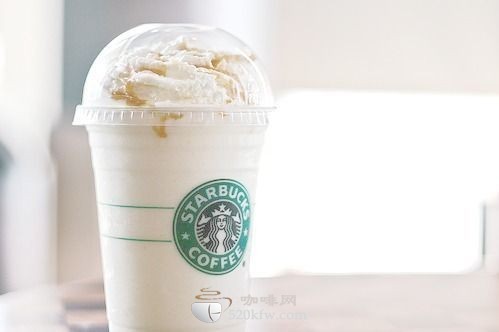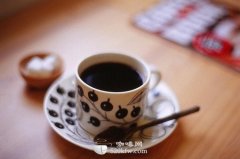Starbucks coffee must be expensive in China.

There is a joke in the United States: when the economic crisis occurred in the United States in 2008, Howard Schultz, CEO of Starbucks, lamented: "Oh, my God!" Starbucks closed 200 stores a day on a street in New York. How can we live in the future? "
The joke reflects the number of Starbucks coffee shops in the United States. It is said that when Starbucks is at its peak, its number is comparable to that of speed limit signs on American highways, that is, if you look up on any street in the United States, you will see a Starbucks. The Starbucks Green Goddess logo has become another symbol of the United States, a totem, after the bright yellow big M of McDonald's [Weibo].
With Starbucks entering China on a large scale, sensitive Chinese have found that Starbucks, a coffee chain that can no longer hillbilly hillbilly in the United States, has become a coffee aristocrat in Chinese soil. Chinese consumers have complained: "Why?" If an American earns $2,000 a month, he only needs to spend $3.45 on a Starbucks. While a Chinese man earns two thousand yuan, he spends 24 to 30 yuan on a Starbucks. Americans, this is too bullying. "
Western economics stipulates that:
Starbucks coffee must be expensive in China.
Is Starbucks deliberately boosting its brand positioning in order to make high profits, catering to face-saving Chinese with high prices, and profiteering at the expense of Chinese consumers?
Fayed, an economics professor at the University of California, Davis, believes that Starbucks' pricing in China follows a very important principle in economics: the law of one price (The Law of One Price). In other words, in the context of globalization, when the same product is sold in different regions, it should be expressed as equal value. To put it simply, if a cup of Starbucks sells for $3.45 in the United States, it should be priced at $3.45 in China multiplied by the exchange rate between US dollars and RMB when Starbucks officially entered the Chinese market in 2010, or 23.8, or about 24 yuan. If Starbucks prices his products below that price, he should be regarded as dumping. In Professor Fayed's eyes, Starbucks' pricing of its products in the Chinese market is reasonable and legal. Such pricing makes room for profits for Chinese coffee shops and drinks, and is a reasonable product of the theory of free competition in western economics.
In fact, the law of one valence is equivalent to the position of Newton's law of universal gravitation in physics in western economics, and it is a law that everyone knows. It is a pity that Chinese economics has been out of touch with Western economic research for a long time, and once there is an incomprehensible phenomenon, it is easy for Chinese consumers to think that this is the economic exploitation of the Chinese people by US imperialism. to accuse American companies of profiteering.
"Big Mac hamburger index"
It doesn't apply in China.
If we look at the extension of the law of one price, we will have different perspectives and conclusions on many economic disputes between China and the United States.
According to the law of one price and the law of purchasing power parity (Purchasing Power Parity), the American Economist (The Economist) used the concept of Big Mac Burger Index for the first time in 1986. The index uses McDonald's Big Mac hamburgers sold in different countries as an important economic index to determine whether each country's currency exchange rate is at the right level.
Of course, this index also becomes the theoretical basis for the United States to accuse China of unreasonable RMB exchange rate. According to the "Big Mac Burger Index", American economists were surprised to find that in July 2013, a Big Mac hamburger sold for $4.56 in the United States, and at an exchange rate of 6.3, it should sell for 28.7 yuan, or about 29 yuan, in China. The actual price of a giant hamburger in China is only 17 yuan. According to this price, the exchange rate between the US dollar and the RMB should be set at 1: 3.5 instead of the current 1: 6.3.
In this way, the Chinese people feel even more wronged. This 17 yuan is not given by me, it is set by your American company, why do you use your own price to complain that my exchange rate is too low? If I do not know the law of one price or the law of purchasing power is wrong, then your American company clearly knows these economic principles, but also gives a 17 yuan, this is not a trick me?
So in retrospect, this "Big Mac Burger Index" has an important economic basis. This index is based on the principle of free competition. The so-called principle of free competition means that in a specific industry, the competitive strength of each enterprise is balanced, restricts each other, and there is no possibility of monopoly.
The American fast food industry where McDonald's is located is a veritable free competition industry. McDonald's in the United States shares the American fast food market equally with fast food chains such as Burger King, Jack in the box, and Little Kelus. There is no monopoly of fast food. In a free competitive market, enterprise pricing is entirely determined by profit. If the price is set high, a large number of consumers will be lost, and if they go to consume the products of their competitors, the enterprise will have to close down; if the price is set low, the enterprise will lose its profits, and of course it will eventually be defeated by other competitors. Under such a premise, the "Big Mac hamburger index" has become a "law of everything" and the most important theoretical basis for the United States to accuse China of interest rates.
But is China's fast food market really a free competitive market? Of course not. In Beijing or Shanghai, McDonald's may be challenged by other foreign fast food, but other brands are far less competitive than it. In other cities, consumers who want to eat hamburgers can only be McDonald's or KFC [Weibo]. McDonald's hamburger sales in China is the largest, become a monopoly. McDonald's is a market price taker (Price Taker) in hamburger sales in the United States, while it is definitely a Price Maker in hamburger sales in China. If it sells for 17 yuan, or $2.70 in the United States, it will die quickly, but in China, not to mention 17 yuan, it will still make a profit if it sells for 15 yuan.
But not many American economists have noticed this, just as not many Chinese economists talk about the law of one price. In this mutual disregard, the 17-yuan Big Mac has not only become a powerful weapon to crack down on other Chinese hamburger sellers, but also a weather vane and banner for the United States to blame China's exchange rate issue.
Economics is just a theory of relativity.
At this point, we suddenly found that in this case, it seems that no one is wrong, but no one is wrong. It's like jumping from Newton's law of universal gravitation to Einstein's theory of relativity.
According to Western economic theory, Starbucks is certainly not profiteering, while for McDonald's, the price of 17 yuan is certainly profitable. And let's imagine, if a Big Mac really sells for 29 yuan, which Chinese can afford to eat its hamburger? Chinese consumers have not suffered losses in this price; since the theoretical basis of the "Big Mac Index" has collapsed, the issue of China's interest rates is debatable, that is to say, the Chinese government is not wrong; in addition, the accusations made by the United States against China are not groundless.
At this point, we can see that economics is a science that is the least like science. American economists often laugh at saying that economists are experts in hindsight. Once the economic crisis occurs, economists often talk about rescuing the market, but who dares to say that a certain decree will immediately succeed in rescuing the market. In the field of economics, there is no law of gravitation, there is only the theory of relativity.
Important Notice :
前街咖啡 FrontStreet Coffee has moved to new addredd:
FrontStreet Coffee Address: 315,Donghua East Road,GuangZhou
Tel:020 38364473
- Prev

The mouth of soya-bean milk and coffee makes you cut down.
Regular coffee drinkers have a lower risk of developing diabetes than non-coffee drinkers, according to a new study by Finnish researchers.
- Next

Evolution Theory of Nestle Coffee Development
This time, Nestle Coffee is ready for a thorough rebranding. After more than 20 years in China, this old coffee brand has finally decided to make itself younger.
Related
- What brand of black coffee is the most authentic and delicious? what are the characteristics of the flavor of the authentic Rose Summer Black Coffee?
- Introduction to the principle and characteristics of the correct use of mocha pot A detailed course of mocha pot brewing coffee is described in five steps.
- Which is better, decaf or regular coffee? how is decaf made?
- How much is a bag of four cat coffee?
- How about four Cat Coffee or Nestle Coffee? why is it a cheap scam?
- Which is better, Yunnan four Cats Coffee or Nestle Coffee? How about cat coffee? is it a fake scam? why is it so cheap?
- How about Cat Coffee? what grade is a hoax? which instant coffee tastes better, four Cat Coffee, Nestle Coffee or G7 coffee?
- Process flow chart of coffee making-Starbucks coffee making process what coffee tastes good at Starbucks
- The top ten best coffee beans in the world Rose summer coffee or Tanzanian coffee tastes good
- Yunnan four cat coffee is good to drink?_four cat coffee is a big brand? four cat blue mountain coffee is fake?

